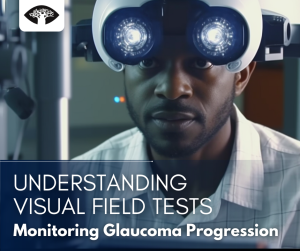Glaucoma is a leading cause of irreversible blindness in the world. It is a condition that affects the optic nerve and can lead to vision loss if not treated early. Unfortunately, many people are unaware that they have glaucoma until it’s too late. Delayed treatment for glaucoma can have severe consequences, including permanent vision loss. This article will discuss the dangers of delayed treatment for glaucoma and what patients should know.
What is Glaucoma?
Glaucoma is a condition that damages the optic nerve, which is responsible for transmitting visual information from the eyes to the brain. The most common type of glaucoma is primary open-angle glaucoma, which occurs when fluid in the eye does not drain properly and causes pressure to build up. This pressure can damage the optic nerve and result in vision loss.
What Causes Glaucoma?
The exact cause of glaucoma is not fully understood, but there are several risk factors that can increase a person’s likelihood of developing the condition. These include:
- Age: Glaucoma is more common in people over the age of 60.
- Family History: If a family member has glaucoma, you are at higher risk of developing the condition.
- Medical Conditions: Conditions such as high blood pressure, diabetes, and heart disease can increase the risk of developing glaucoma.
- Eye Trauma: Trauma to the eye can cause damage to the optic nerve and increase the risk of glaucoma.
- Ethnicity: African Americans, Hispanics, and Asians are at higher risk of developing glaucoma than Caucasians.
The Importance of Early Detection
Early detection is crucial in treating glaucoma. If left untreated, glaucoma can cause irreversible vision loss. In the early stages, glaucoma may not have any symptoms, which is why regular eye exams are essential. During an eye exam, an ophthalmologist can detect signs of glaucoma before it causes significant damage to the optic nerve.
The Dangers of Delayed Treatment
Delayed treatment for glaucoma can have severe consequences. As the pressure in the eye increases, it can cause irreversible damage to the optic nerve. This damage can result in blind spots in the visual field, and over time, it can progress to complete blindness. If treatment is delayed, the damage to the optic nerve may be irreversible, and the patient may lose their vision permanently.
Treatment Options
There are several treatment options available for glaucoma, depending on the severity of the condition. These include:
- Eye Drops: Eye drops can help reduce pressure in the eye and prevent further damage to the optic nerve.
- Laser Treatment: Laser treatment can be used to improve the flow of fluid in the eye, reducing pressure.
- Surgery: In some cases, surgery may be required to reduce pressure in the eye.
Prevention
While there is no guaranteed way to prevent glaucoma, there are steps you can take to reduce your risk of developing the condition. These include:
- Regular Eye Exams: Regular eye exams can detect signs of glaucoma before it causes significant damage to the optic nerve.
- Healthy Lifestyle: Maintaining a healthy lifestyle can reduce the risk of developing glaucoma. This includes eating a balanced diet, exercising regularly, and avoiding smoking.
- Knowing Your Family History: If a family member has glaucoma, you are at higher risk of developing the condition. Knowing your family history can help you take proactive steps to reduce your risk.
Conclusion
Delayed treatment for glaucoma can have severe consequences, including permanent vision loss. Early detection is crucial in treating glaucoma, and regular eye exams are essential. If you have a family history of glaucoma or are at risk for the condition, it’s important to talk to your ophthalmologist about preventative measures you can take.
Remember, there are several treatment options available for glaucoma, including eye drops, laser treatment, and surgery. With early detection and proper treatment, it is possible to prevent further damage to the optic nerve and maintain good vision.
If you suspect that you may have glaucoma, or if it’s been some time since your last eye exam, schedule an appointment with your ophthalmologist today. Don’t delay treatment – your vision is too important to take risks.


